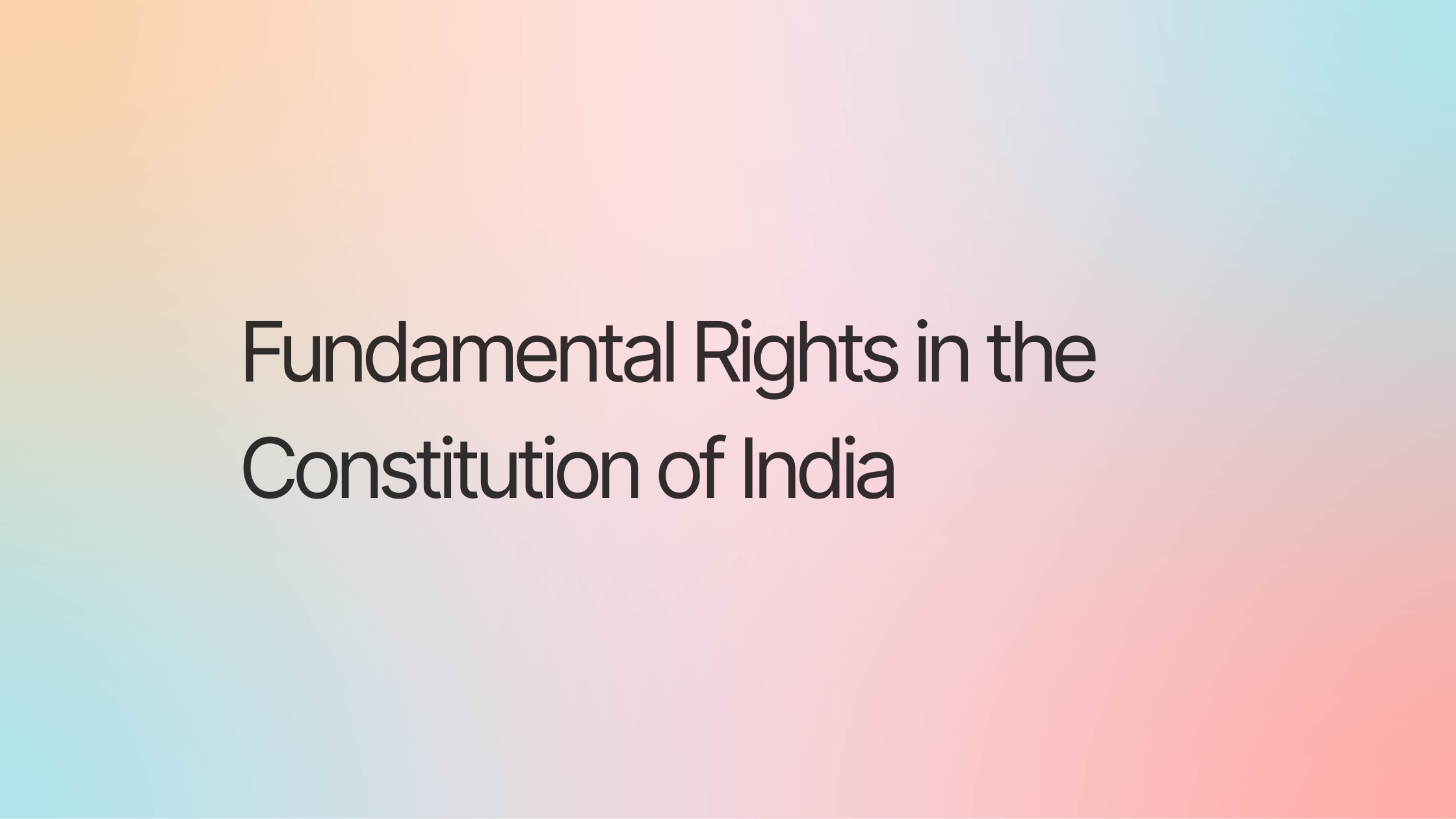Preamble
WE, THE PEOPLE OF INDIA, having solemnly resolved to constitute India into a SOVEREIGN SOCIALIST SECULAR DEMOCRATIC REPUBLIC and to secure to all its citizens:
- JUSTICE, social, economic, and political;
- LIBERTY of thought, expression, belief, faith, and worship;
- EQUALITY of status and of opportunity;
- and to promote among them all FRATERNITY assuring the dignity of the individual and the unity and integrity of the Nation;
IN OUR CONSTITUENT ASSEMBLY this twenty-sixth day of November, 1949, do HEREBY ADOPT, ENACT AND GIVE TO OURSELVES THIS CONSTITUTION.
Abstract
The Indian Constitution provides a robust framework for fundamental rights that safeguard the democratic fabric of the nation. Drafted under the leadership of Dr. B. R. Ambedkar, it was adopted on 26 November 1949 and came into effect on 26 January 1950. Initially comprising 395 articles in 22 parts, the Constitution has since evolved through amendments, now encompassing 448 articles across 25 parts and 12 schedules. Key features include the Preamble, Fundamental Rights, Directive Principles, Secularism, Federalism, Independence of the Judiciary, and Single Citizenship. Notably, legal technology platforms like LawSimpl.ai are transforming how legal professionals navigate constitutional rights through AI-driven legal research and automated case law analysis.
Introduction
The Indian Constitution establishes a two-tier government structure, balancing the Union and State relationship dynamically. Given the evolving social, economic, and political landscape, it is imperative to review legal frameworks to ensure they align with contemporary challenges. The Sarkaria Commission (1983) was established to examine Union-State relations, emphasizing the need for cooperative federalism. Over the years, legal AI solutions have emerged, assisting lawyers and policymakers in constitutional interpretation and legal analysis, making platforms like LawSimpl.ai indispensable for modern legal research.
Fundamental Rights in the Indian Constitution
The Constitution of India grants six primary fundamental rights to its citizens:
- Right to Equality (Articles 14-18)
- Right to Freedom (Articles 19-22)
- Right Against Exploitation (Articles 23-24)
- Right to Freedom of Religion (Articles 25-28)
- Cultural and Educational Rights (Article 21A & 29-30)
- Right to Constitutional Remedies (Articles 32 & 226)
Right to Equality
Articles 14-18 ensure fairness and equal treatment under the law, prohibiting discrimination based on religion, race, caste, gender, or place of birth. Legal professionals use AI-powered legal research tools to access precedents that uphold equality, streamlining case preparation.
Right to Freedom
Articles 19-22 grant individuals fundamental freedoms, such as freedom of speech, expression, and personal liberty. AI-driven legal document automation and natural language processing (NLP) for case law analysis significantly enhance legal advocacy and constitutional litigation.
Right Against Exploitation
Articles 23-24 prohibit human trafficking, forced labor, and child labor. AI-based legal analytics enable law firms to track judicial trends in exploitation cases, ensuring effective legal representation.
Right to Freedom of Religion
Articles 25-28 uphold religious liberty, allowing individuals and communities to practice and propagate their faith. Legal AI solutions aid in comparative legal analysis, helping lawyers defend religious freedoms in court.
Cultural and Educational Rights
Article 21A guarantees the Right to Education, empowering every child with access to schooling. AI-driven legal research automation assists in analyzing education laws and filing petitions to uphold educational rights.
Right to Constitutional Remedies
Articles 32 and 226 empower citizens to approach the Supreme Court and High Courts for enforcing their fundamental rights. AI-powered legal research platforms like LawSimpl.ai assist lawyers in drafting writ petitions (habeas corpus, mandamus, prohibition, certiorari, quo warranto), ensuring precise legal documentation and argument formulation.
The Role of AI in Strengthening Fundamental Rights
Legal professionals now rely on AI-driven legal research tools to uphold constitutional rights effectively. LawSimpl.ai, a cutting-edge AI-powered legaltech platform, enhances:
- Legal Document Drafting: Automating petition and contract drafting with AI-powered templates.
- Case Law Research: Using machine learning for legal analytics, ensuring quick access to relevant judgments.
- Compliance & Risk Management: Helping corporate legal teams align policies with fundamental rights.
- Judicial Trend Analysis: Utilizing predictive legal analytics for case outcome probabilities.
Conclusion
Fundamental Rights are the cornerstone of Indian democracy, ensuring justice, equality, and personal freedoms. As legal frameworks evolve, the integration of AI-driven legaltech streamlines legal research, enhances case preparation, and safeguards citizens’ rights more effectively. LawSimpl.ai is at the forefront of this transformation, empowering legal professionals with AI-powered legal document automation, case law analysis, and compliance tools. By leveraging artificial intelligence in legal research, India’s judiciary and legal community can uphold constitutional values with greater efficiency and precision.
